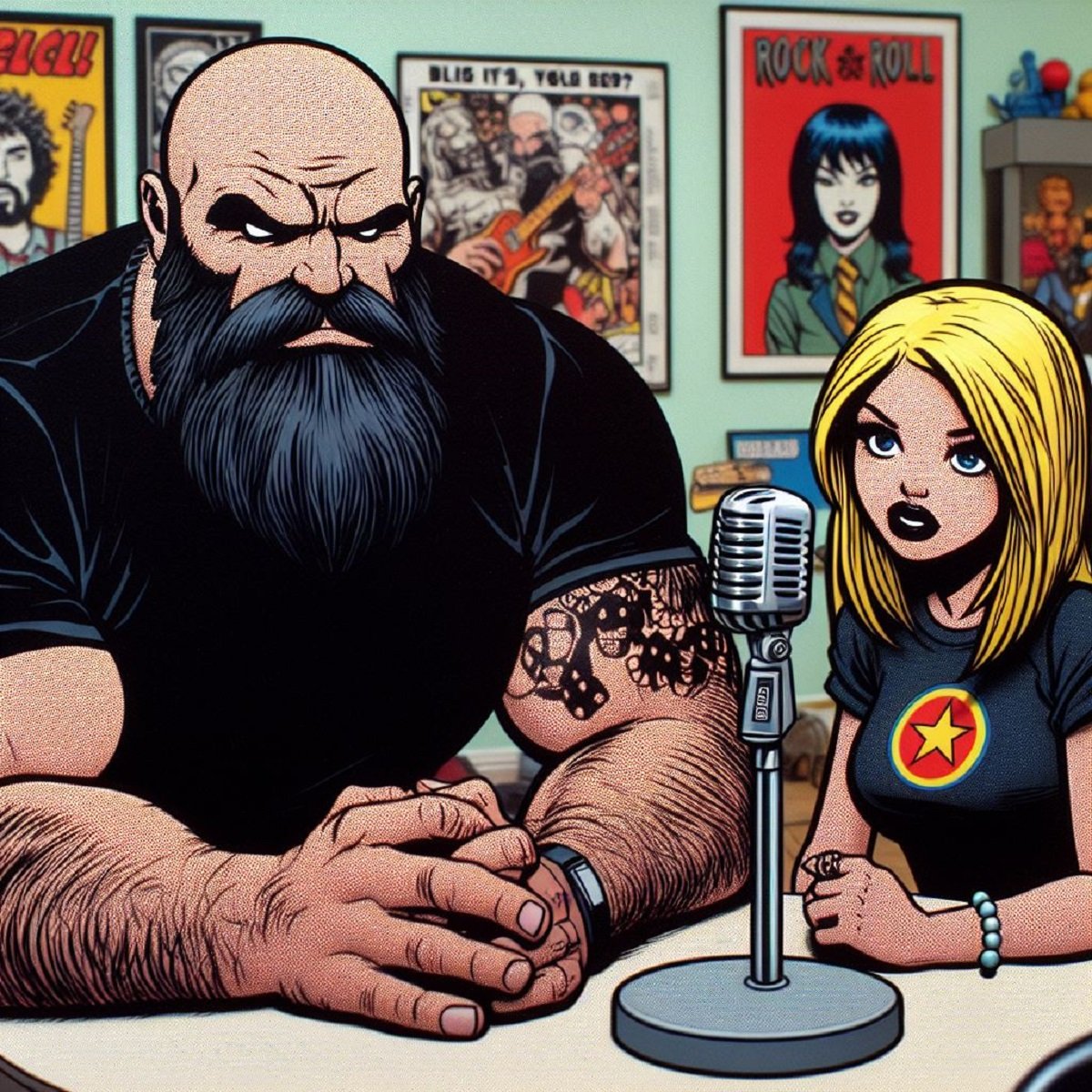Final Girls Berlin Film Festival: "Lyle" and "Pin Cushion" Reviews
by Joseph Perry (@JosephWPerryJWP)
Please donate to help keep our website open. Thank you! Any amount helps!
Two films with echoes of classic horror movies screened at the Final Girls Berlin Film Festival, held February 1–3 in Berlin, Germany. American independent feature Lyle is a modern riff on Rosemary’s Baby, and British drama Pin Cushion recalls Carrie in its tale of high school bullying.
Writer/director Stewart Thorndike’s Lyle takes the premise from Rosemary’s Baby of a pregnant woman growing ever more paranoid that something is dangerously amiss with her neighbors and significant other, and places it in a contemporary setting. The main crux of the action still takes place in an older New York City apartment building, which pregnant Leah (Gaby Hoffman) and her music-biz girlfriend June (Ingrid Jungermann) rent as soon as they look at, and fall in love with, it. They lose their toddler daughter, Lyle (Eleanor Hopkins), to a tragedy, after which the distance that June was already starting to put between them grows ever wider.
From the beginning, Leah is concerned that something is dreadfully wrong with their landlady neighbor Karen (Rebecca Street). Leah grows suspicious of other neighbors and acquaintances, as well, as Lyle weaves its psychological horror around whether her fears are well founded, or all in her mind.
Lyle runs a thrifty 65 minutes, and Thorndike keeps things well-paced for the most part, with a growing sense of dread and a gripping climax. Hoffman is terrific as Leah, trying to make sense of an accident that she thinks was more than that, and attempting to deal with the loss of her first child as she carries another life inside her as mystery builds around her. Street is also solid as a woman seemingly past child-bearing age who pretends to be pregnant. The rest of the cast acquit themselves well, too. Lyle is a horror film that works on terrors of the mind rather than relying on jump scares or gore, and it delivers its frights and surprises effectively.
Writer/director Deborah Haywood’s Pin Cushion is not a horror film in the conventional sense, but the bullying and ugliness visited on its protagonists is jarring and harrowing stuff. Lyn (Joana Scanlan) and her daughter Iona (Lily Newmark) move to a new town for a fresh start, decorating their home with assorted knick-knacks, trinkets, and baubles that provide them with a cheerful, sweet safe haven from the cruel outside world. They dance together, share a bed together, and keep to themselves — sort of a more upbeat, if no less codependent, take on Carrie White and her mother Margaret from Brian De Palma’s film adaptation of Stephen King’s Carrie. When Iona is invited into the world of clique leader Keeley (Sacha Cordy-Nice), though, a crack begins to form in their close relationship.
Life has already been difficult enough for Lyn, with her hunchback, short leg, and social awkwardness. When she goes on her own search for friends and makes up a fantasy social life, it is as heartbreaking as the trap that Keeley and her friends are setting up for Iona. Lyn and Iona’s shared fantasy worlds begin to take on separate lives, and the ruthlessness of reality is not far behind. Scanlan is marvelous as a social outcast in danger of losing the only person in the world she loves and who loves her back, and Newmark proves herself to be a shining talent who viewers are sure to see much more of in the future.
Haywood invests Pin Cushion with brightly colored interior decor and make-believe sequences that counterbalance the monstrousness and severity of the tragedies that befall both Lyn and Iona. Haywood doesn’t hold back on the brutality of bullying and its effects, making this an artfully designed social message drama that deserves to reach as wide an audience as possible.
Joseph Perry is one of the hosts of When It Was Cool’s exclusive Uphill Both Ways podcast (whenitwascool.com/up-hill-both-ways-podcast/) and Gruesome Magazine’s Decades of Horror: The Classic Era podcast (decadesofhorror.com/category/classicera/).
He also writes for the retro pop culture website That’s Not Current (thatsnotcurrent.com), Diabolique Magazine (diaboliquemagazine.com), Scream Magazine (screamhorrormag.com), and several other print and online film critique and pop culture magazines.
If you found this article interesting consider becoming a Patreon supporter. That is how When It Was Cool keeps our website and podcasts online, plus you get lots of bonus content including extra and extended podcasts, articles, digital comics, ebooks, and much more. Check out our Patreon Page to see what's up!
If you don't want to use Patreon but still want to support When It Was Cool then how about a one time $5 PayPal donation? Thank you!































































